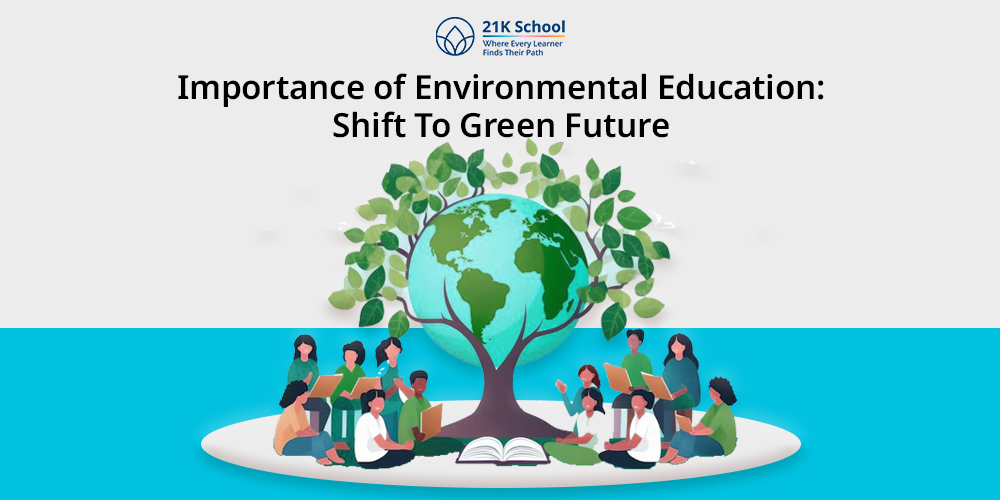
The rising interest in climate change, pollution, loss of biodiversity and unsustainable resource utilization is no longer blurred. It has necessitated environmental education more than ever before.
Environmental education is needed in the current era of growing effects of ecological issues on health, livelihoods and global ecosystems.
It imparts the knowledge, skills and motivation of individuals to make sound decisions and be responsible in environmental matters.
This education is central in building a sustainable future, whether in the classrooms or the community.
This article introduces you to the depths of environmental education along with its significance for students.
What is Environmental Education?
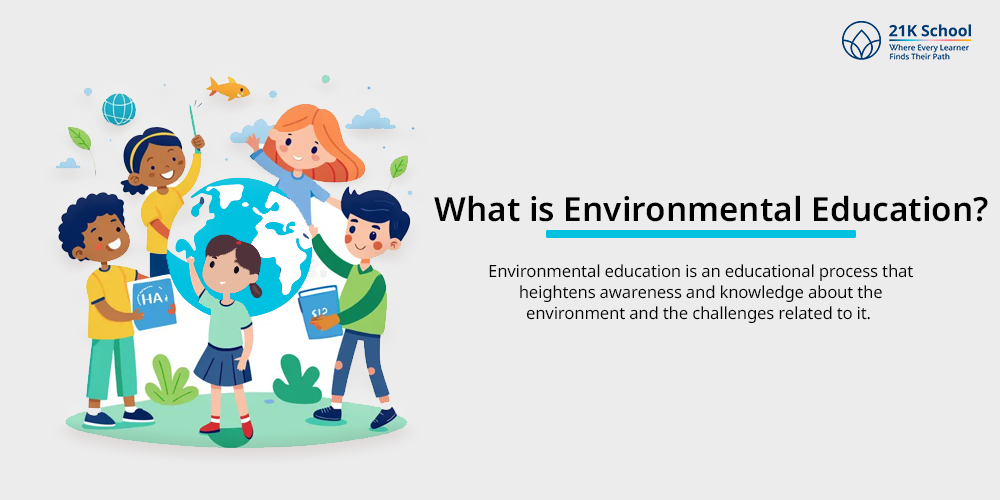
Environmental education is an educational process that heightens awareness and knowledge about the environment and the challenges related to it.
It enhances acquisition of required skills and values as well as behaviors that promote environmental stewardship.
Environmental education is not restricted to teaching ecology or biology. It also involves the economic, social, political, and ethical aspects of environmental contention.
It creates an incentive to individuals and communities to:
- Learn environmental systems and the way human beings relate with them
- Inquire into the impacts of environmental choice
- Become problem solving and sustainable in practice
According to UNESCO, environmental education is critical in enhancing the shift towards a more sustainable society.
It is multidisciplinary, encompassing scientific knowledge, humanities and civic education, to develop a full picture of the environmental issues.
10 Importance of Environmental Education
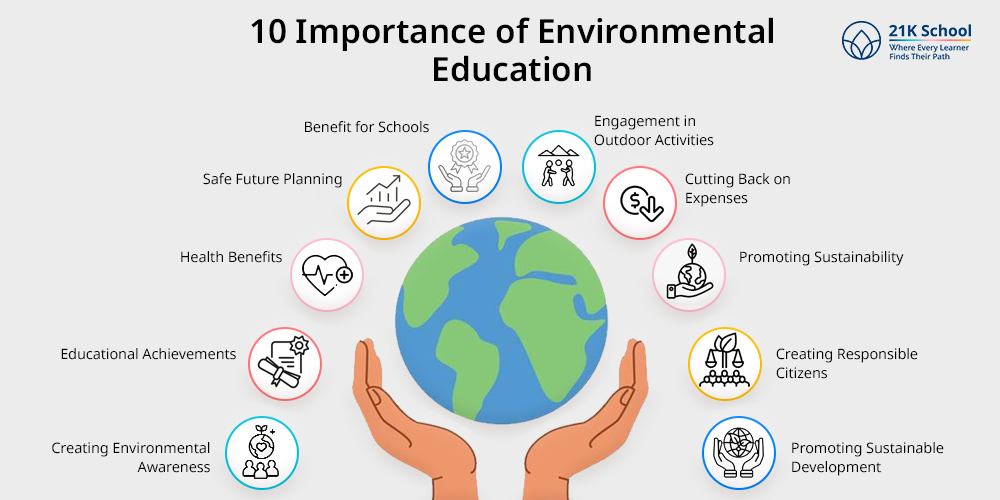
Nature should always be a priority, either when we are thriving for our professional future, or just living life.
Schools and communities should teach how to raise environmental awareness among young people , as they form the upcoming future.
1. Creating Environmental Awareness
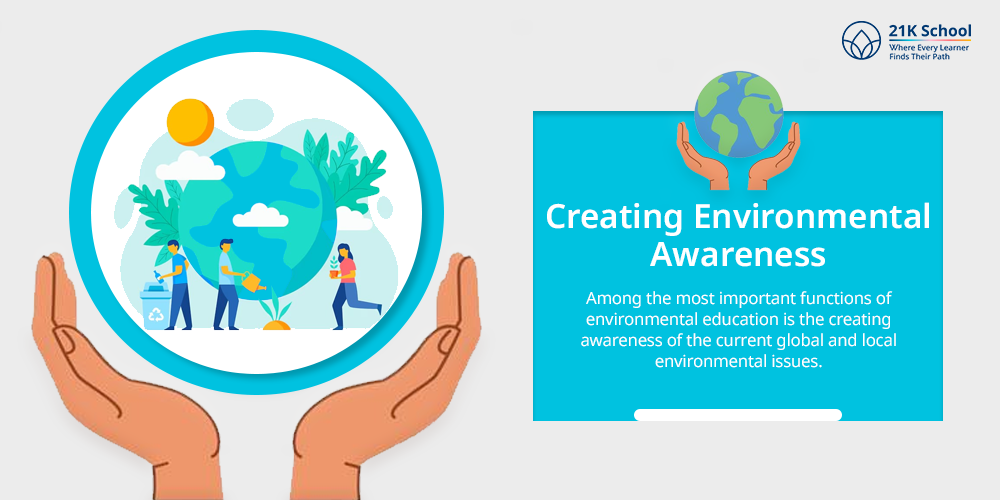
Among the most important functions of environmental education is the creating awareness of the current global and local environmental issues.
Complicated issues such as deforestation, global warming, water shortage and air pollution are also hard to understand.
Education helps people understand better why these issues emerge. And how they impact ecosystems, human life, and what can be done to prevent or minimize their impact.
Issues are brought out through educational campaigns, community workshops and school programs. Such consciousness paves the way to becoming proactive and supporting sustainable environmental control.
2. Educational Achievements

Environmental education facilitates increased academic performance.
Research indicates that environmental content in the curriculum improves problem-solving, analytical skills and critical thinking , in learners.
The outdoor learning and practice of science and geography help to increase interactions with learning. Environmental-oriented project learning can enhance the performance of the students in other subjects.
It also builds teamwork, relationship and student leadership qualities that are essential to scholarly and personal growth.
3. Health Benefits

Green space is fundamental to human health because of clean air, safe drinking water, and nutritious food. Environmental education enables people to realize the connection between physical health and the environment.
As an illustration, one can consider studying about the sources of pollution and its impact on respiratory problems.
This can prompt a more favorable community decision, e.g. cutting car emissions, or waste burning.
Besides, environmental education promotes such activities as gardening, recycling, and eco-friendly lifestyles, which add up to healthier lifestyles and communities.
4. Safe Future Planning
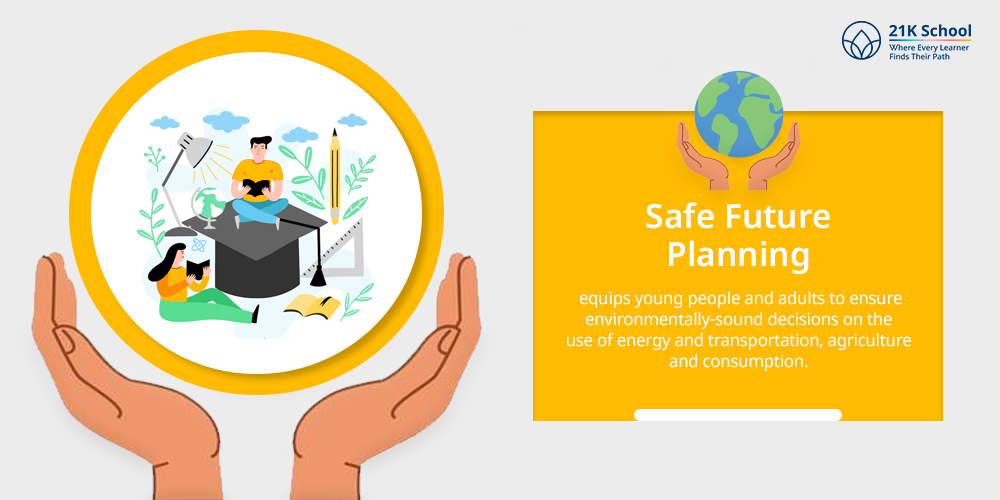
Environmental education is a key player in a sustainable and a secured future.
It equips young people and adults to ensure environmentally-sound decisions on the use of energy and transportation, agriculture and consumption.
Realizing the long-term effects and constraints on resources, a person is better able to plan ahead, both personally and globally.
Education would ensure environmental literacy of administrators, corporations and families into policies and practices that conserve natural resources.
5. Benefit for Schools

Schools where environmental education has been incorporated do so in a number of manners.
School cultural integration of sustainability results in engaged students, motivated teachers and improved performance on standardized tests.
Eco-program schools tend to be more frequently attended, have less bad behaviour and they have a real feeling of community.
Moreover, green measures like energy saving, tray waste, and water saving have enabled schools to cut down their costs. Not only are they cost-saver, but also live examples of what sustainability is.
6. Engagement in Outdoor Activities
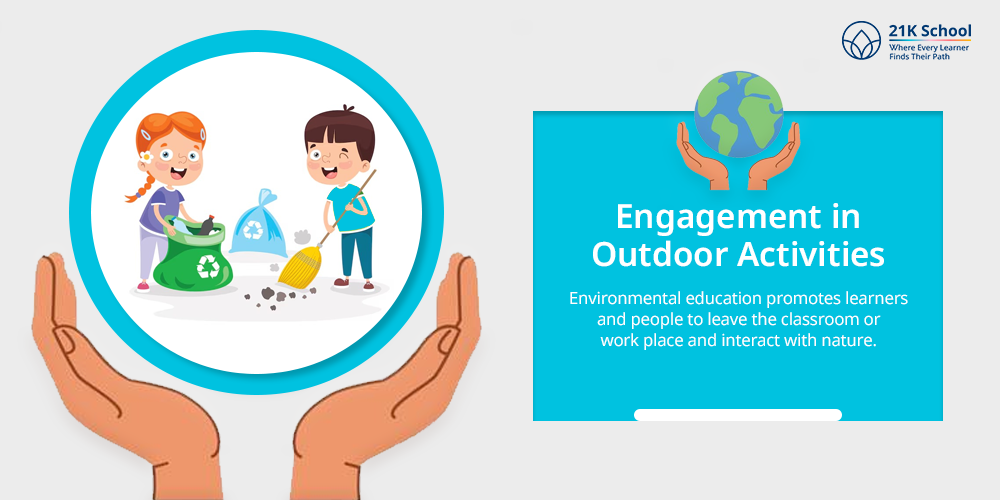
Environmental education promotes learners and people to leave the classroom or work place and interact with nature. Nature walks, conservation and clean-up drives are outdoor activities that can lead to physical fitness.
It also relieves stress and enhances stronger bonds with the environment. The other effect of spending time in nature is boosting the emotional state, creativity and empathy .
Young learners can fix abstract notions through practical outdoor activities for kids . They can gain an unwavering understanding of the values of natural ecosystems.
7. Cutting Back on Expenses
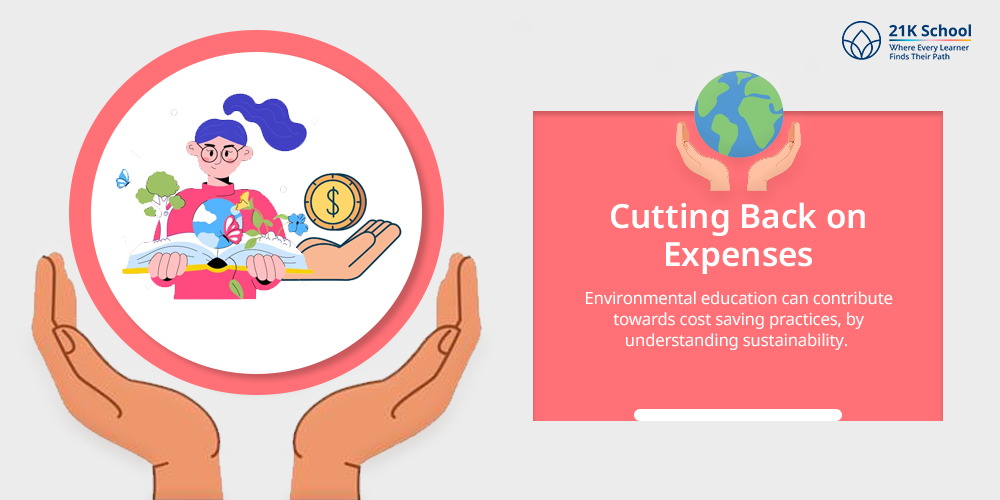
Environmental education can contribute towards cost saving practices, by understanding sustainability.
Energy-efficient appliances, minimizing disposable plastics, water wealth, and traveling by bus also helps in cutting down personal and household costs.
At the local level, sustainability education assists communities and enterprises to reduce expenditure on waste disposal. It can assist in enhancing efficiency, and developing resiliency at the economic-related shocks of climate change.
It is not uncommon that sustainable decisions are beneficial not only to the environment but also to the pocket.
8. Promoting Sustainability
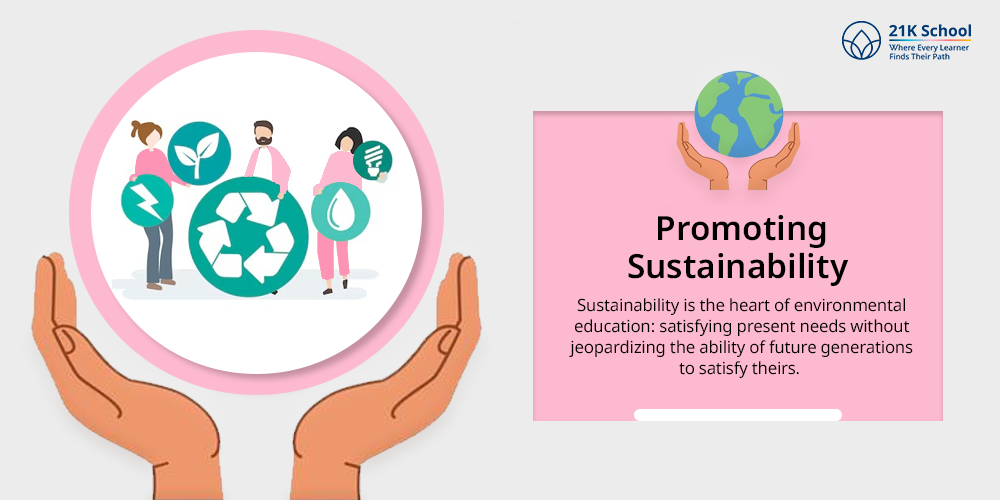
Sustainability is the heart of environmental education: satisfying present needs without jeopardizing the ability of future generations to satisfy theirs.
It develops a culture of governance and imparts the understanding of the importance of ecosystems, biodiversity, and renewable assets.
Sustainable education promotes system change through the incorporation of green thinking in the personal, professional, and civic life of people.
It results in green inventions, conscientious consumption, and cleaner energy practises production.
9. Creating Responsible Citizens
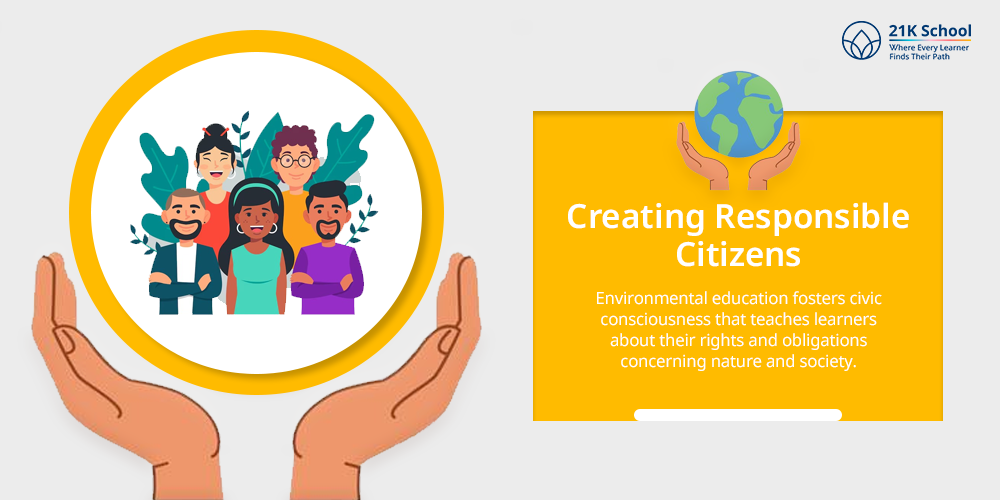
Uninformed and irresponsible citizens are among the contemporary aspects that threaten democratic societies and the environment.
Environmental education fosters civic consciousness that teaches learners about their rights and obligations concerning nature and society.
It invites people to vote on environment-friendly decisions, attend local cleanups, take climate support measures, and make ethical consumer decisions. By knowing the effects of their activities on the environment, people will tend to be more responsible.
Not just that, they can easily persuade others to be as well.
Environmental education delivers on the sustainable development global agenda particularly in relation to the United Nations Sustainable Development Goals (SDGs).
It works with objectives like quality education (Goal 4), clean water and sanitation (Goal 6), affordable and clean energy (Goal 7), and climate action (Goal 13).
10. Promoting Sustainable Development

Environmental education enables communities, particularly marginalized and youth, to become sustainable change agents through education.
It develops the capacities of innovation, resilience and equity at sector and societal levels.
In Conclusion
Environmental education is not a subject. It is a necessity in the development of a livable planet.
It will arm individuals with knowledge, and abilities to make appropriate choices serving the environment and the society in general.
Be it a child studying the water cycle or a policymaker getting knowledge on the effects of climate change. The thread that binds awareness to action is education.
The importance of environmental education cannot be undermined as the globe finds itself within challenging environmental issues.
It is an instrument of change– molding minds, changing behaviors and protecting our future generations and our planet.
